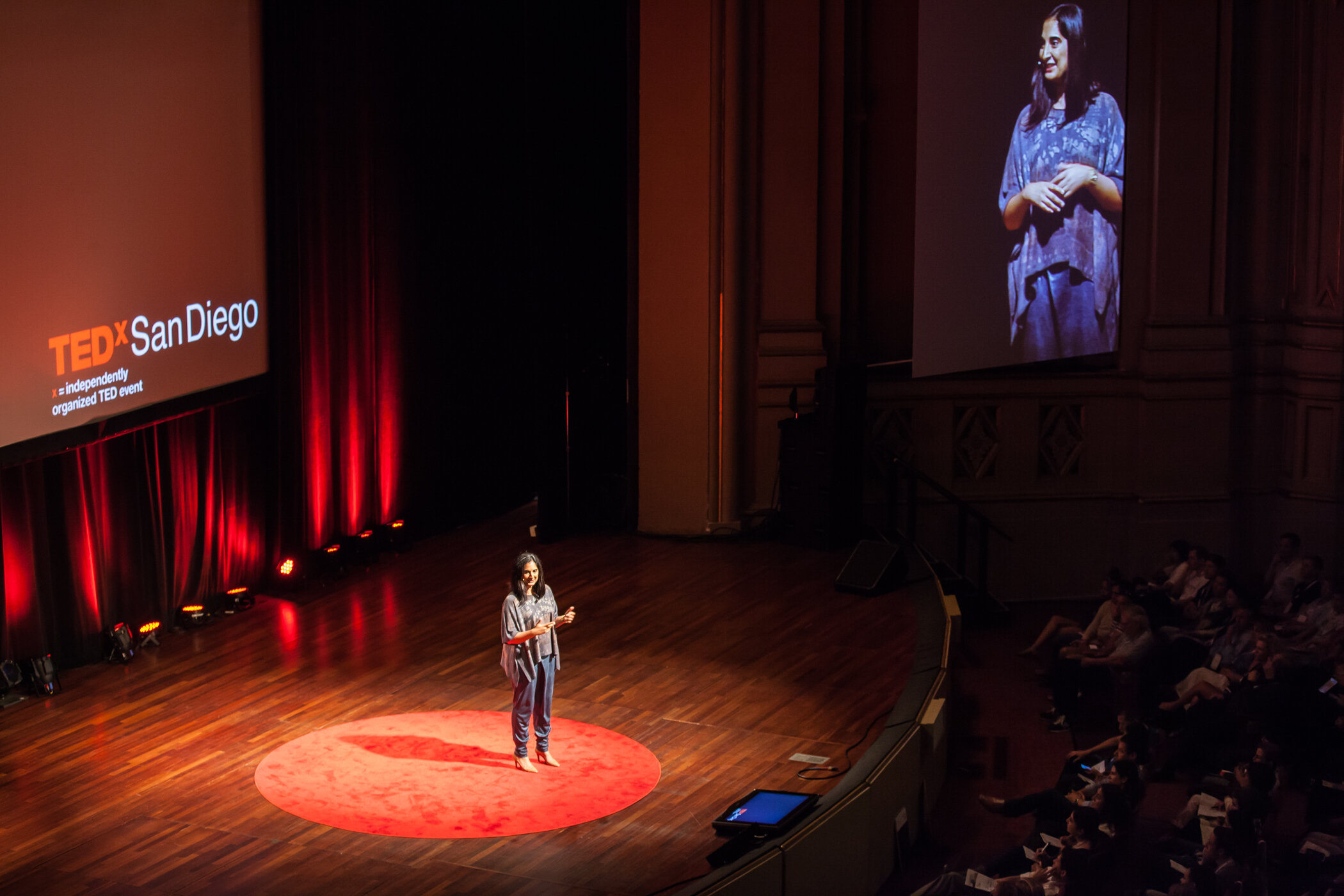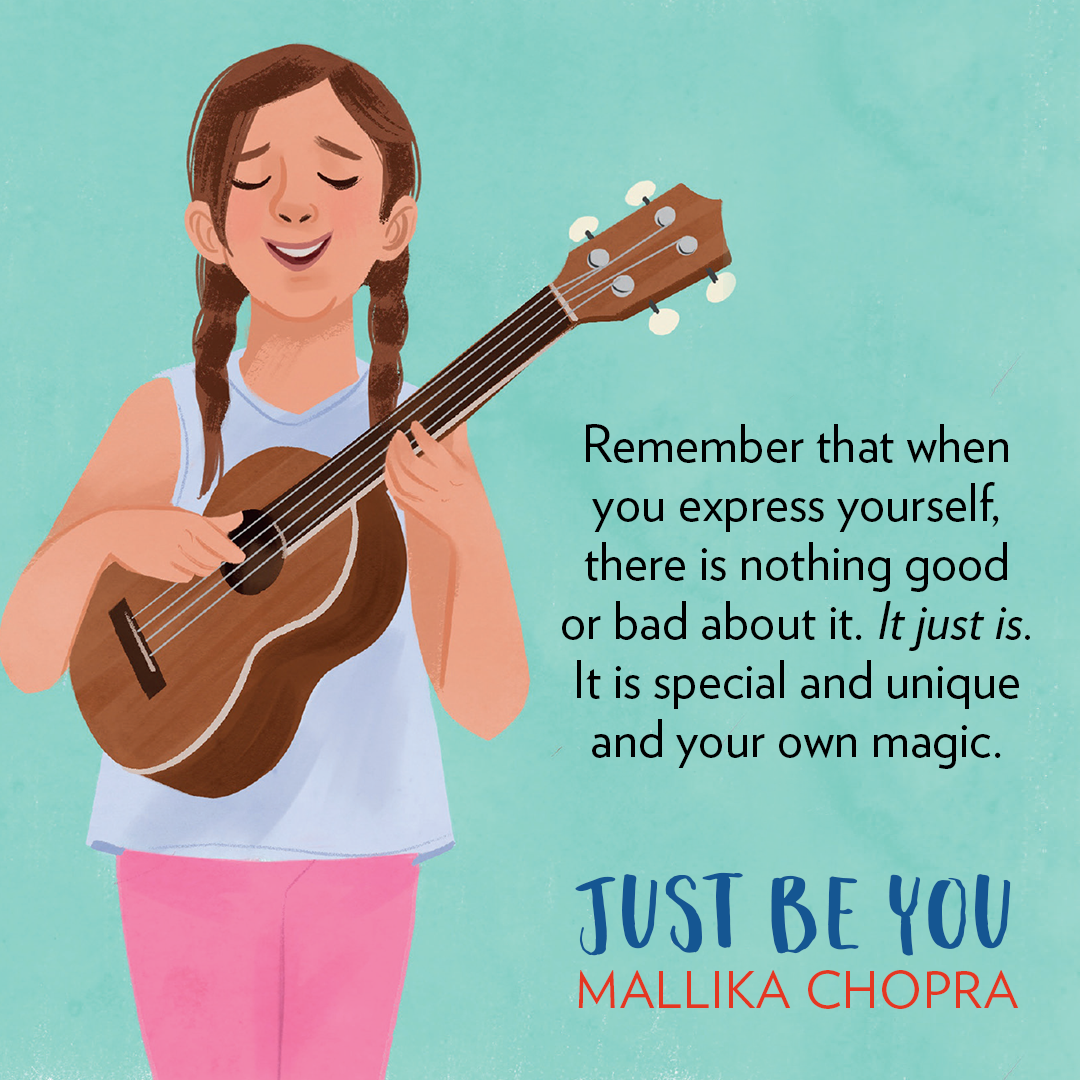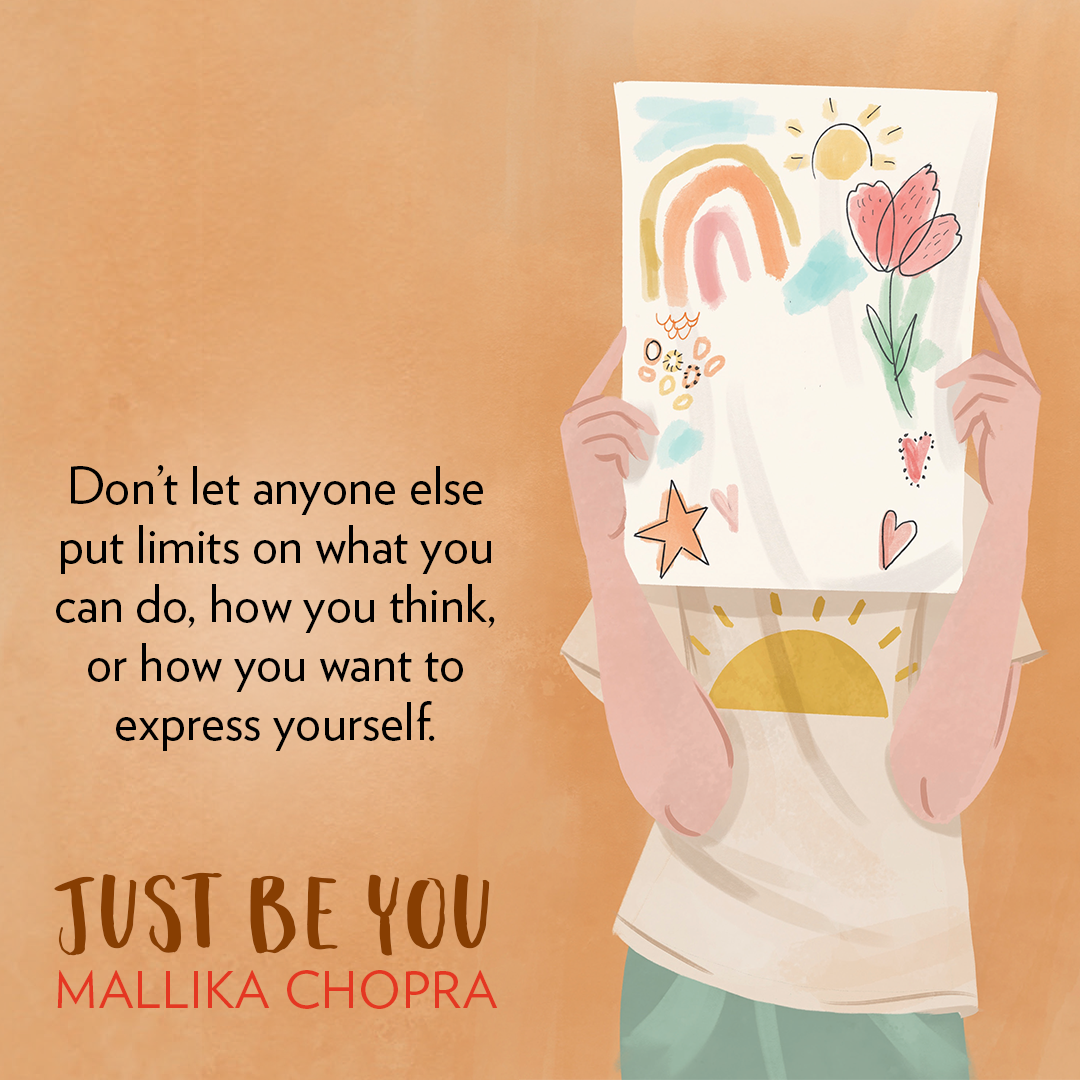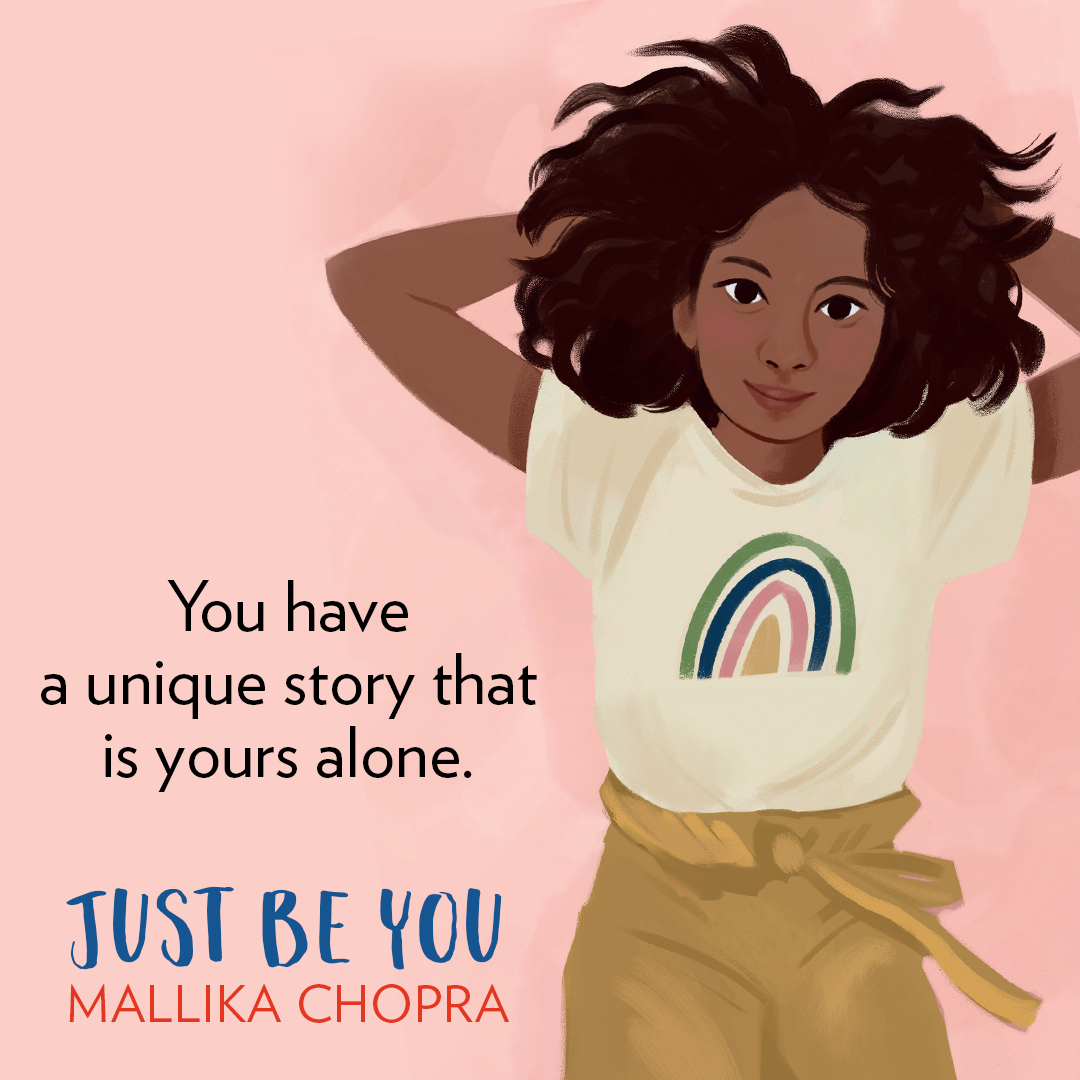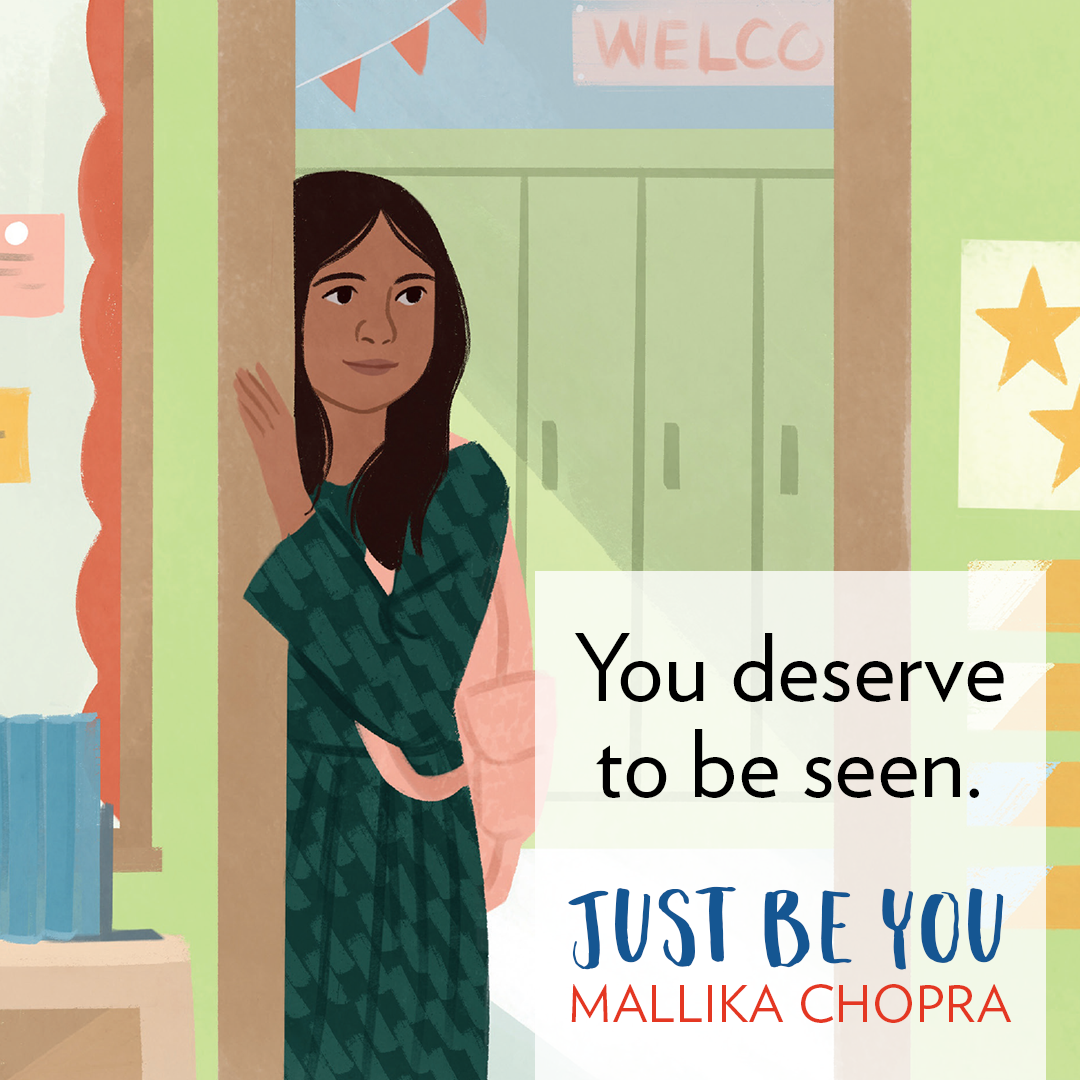Meet Mallika Chopra, Author of “Just Be You"
Interviewed by Diane Cyr
Editor’s note
It’s perhaps no surprise that Mallika Chopra, daughter of meditation and mindfulness pioneer Deepak Chopra, is well-versed in wellness habits. Her popular children’s books, Just Breathe and Just Feel, build on her work in seminars and classrooms, bringing mindfulness and meditation to kids on the cusp of adolescence. But in her latest book—Just Be You—Chopra brings something new to the table: individuality. Through creative exercises and suggestions—like inventing your own name—she encourages children 8 to 12 to question labels and explore what makes them unique and special. That’s something Chopra can relate to: Although she has worked with her father and brother in different capacities, including founding The Chopra Well on YouTube, she’s also forged her own professional identity. After earning an MBA from Kellogg and an MA in education and psychology at Columbia, she’s done everything from helping bring MTV to India to launching the Heal the World Foundation to creating her own lifestyle website, Intent.com. Here she discusses why Just Be You brings an important message on helping kids become their best selves.
How does Just Be You differ from other books in the Just Be series?
I wrote the Just Be series so that you can open up any page, explore a topic or try an exercise. That said, Just Breathe focuses on the how-to of meditation, mindfulness, and movement – the simple exercises that you can do anytime and anyplace. Just Feel is about social and emotional knowing and resilience – accepting your range of emotions, recognizing how your body reacts to feelings and sharing how you feel so that you feel supported. Just Be You is unique in its focus on self-reflection – asking questions, setting intentions, and being proud of your uniqueness as you discover who you are and your place in the world.
Your series focuses on adolescents and pre-adolescents. What’s important about addressing this age range?
As pre-adolescents, children are starting to form their own opinions and make more of their own decisions. If we can provide them with an emotional and mindful tool kit early on, they will feel more empowered in the potentially tumultuous teenage years and beyond.
Is it important that parents read the Just Be You book as well?
I strongly believe that adults teach children by example, not just words. Hopefully, Just Be You provides both children and the adults in their lives valuable tools for living a happier, healthier, and more purposeful life. When adults and children practice some of these exercises together – mindful walks or meals, a meditation together, sharing stories about where we came from – it is a beautiful way to nurture meaningful and magical bonds.
What did your father teach you about nurturing your individuality?
My father, Deepak Chopra, taught my brother and me to meditate when we were young. I know from experience how the practice anchored me for the many changes, questions, struggles, and joys that were normal for my teenage years and beyond. But my father always emphasized that meditation was not just for stress release, but to ask ourselves bigger questions about our place in the universe and how we can serve. I structured Just Be You around four questions he asked us: Who am I? What do I want? How can I serve? What am I grateful for?
How have you helped your own daughters navigate their challenges to become their best selves?
My two daughters have different interests and personalities. Tara, my 19-year-old, loves to write music and took on leadership positions in high school. Leela, my 16-year-old, practices Tae Kwon Do and is a gamer who started an e-sports team at her school. I encourage them to keep exploring while remaining committed to their interests, but I emphasize that they are not defined by what they do. Rather, as a parent, I have focused on kindness, caring for others, and always asking how can we serve.
Are you an advice-giver to your children? When you want to advise them, how do you become “askable?”
My nature is to always give advice, so I need to discipline myself to let them figure things out. I have tried to nurture conversations that recognize life can be difficult, struggle is normal, asking questions is empowering, and often we just don’t know the answers. Also, I try not to criticize or get too angry if they make mistakes because the goal is to learn and move forward. I share my mistakes and struggles – as appropriate - with my girls, too.
What’s the biggest obstacle for children trying to find their own voices in the world? Is it peer pressure, social media, restrictive or helicopter parenting?
Each child is unique so each one will have their own obstacle. In the hopes of protecting them, parents can often get in the way, creating more expectations and anxiety for their children. Social media exacerbates children’s feelings of being left out and not good enough, and we need to always remind them how the platform supports that behavior. Frankly, our education system itself can restrict children’s growth and creativity, so as parents we need to balance the external demands of the system with love, support and creative outlets.
What worries you looking at today’s adolescents, and what gives you hope?
My immediate concern is the emotional impact that online education has had on kids during the pandemic. Learning has been turned upside down, many kids have been left behind, and this creates fear and anxiety. The loss of daily interaction, reliable school schedules and extracurricular activities—along with the anxiety of the pandemic itself—will have long-term impact on children’s social and emotional growth. My hope, though, lies in the fact that kids are creative and design new ways to interact. My daughter, for example, created community through gaming and e-sports. These are worlds that I don’t even understand, but she has figured it out with her friends, classmates and school. To me, it’s a great example of how supporting our kids through hard times also means letting them find creative solutions that meet their needs.
What piece of advice do YOU wish you’d had as a child?
Honestly, I feel my parents supported my brother and me in so many ways, including giving us permission to not know all the time. My dad would tell us not to take life too seriously. The biggest insight for me—which I probably accepted only in the last 10 years—is that life is a messy journey and that is wonderful.
What would be a follow-up book to Just be You? Will there be an emphasis on service or on being part of the larger world?
I feel the Just Be series, with these three books – Just Breathe, Just Feel and Just Be You- is complete at this time. Yes, service and connection to the universe are indeed important topics, but perhaps those will find their way in some other form or series. Stay tuned. ☺


